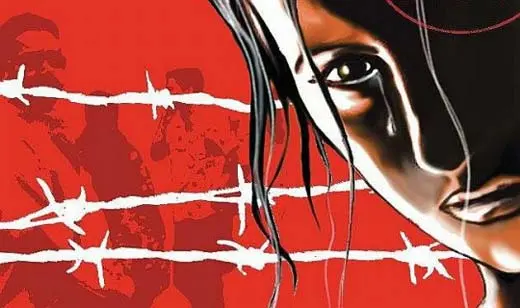Altaf Hussain Wani
The women in Kashmir who have suffered untold hardships due to sexual violence are still waiting for justice — a prospect that seems a long way off as long as the AFSPA remains in force and hampers the conviction of perpetrators
The unrest and the events that unfolded in Jammu and Kashmir over the past 35 years have left indelible scars on the population, with Kashmiri women in particular suffering disproportionately. Violence, displacement and constant grief have severely affected their physical, mental and emotional well-being. Among the multiple forms of abuse they face, sexual violence stands out as a particularly egregious assault, leaving a legacy of suffering embodied by rape survivors.
The weaponisation of sexual violence in the Kashmir conflict is an egregious reality that has largely escaped the attention of local and international observers. An incredible 36% of women in this long-suffering region suffer from anxiety disorders. Many have been widowed or displaced, harassed, gang-raped and subjected to cruel treatment during interrogations and military operations.
The official death toll from the conflict is over 50,000; however, independent sources believe the figure could be twice as high. It is estimated that around 50,000 women have been widowed. Human rights groups have documented that over 10,000 people have disappeared since 1989, a figure that stands in stark contrast to the official figures.
Incidents such as the gang rape in Kunan Poshpora in 1991, the double murder and rape in Shopian and the gang rape of young Asifa Bano are among the most harrowing examples of the nightmare faced by women in Kashmir. A report based on testimonies of women from the valley confirms that the security forces deliberately targeted these women. According to a 1996 Human Rights Watch report, rape was used as a counter-insurgency tactic.
Norwegian researcher Inger Skjelsbæk notes that a typical pattern in Kashmir is for the soldiers to drive out or kill the men before raping the women who remain behind. The conflict has also significantly affected women’s prospects for employment, education and broader development. The prevalence of psychiatric disorders has risen sharply due to the ongoing conflict, while young women and girls live in constant fear of abduction and assault by the Indian Army, which is omnipresent throughout the state.
After 5 August 2019, when Article 370 was revoked, the plight of women in Kashmir has further worsened. Studies show a worrying rise in untreated mental illness in the Valley, with one study indicating that the prevalence of mental disorders is significantly higher than the national average in India. A report by Médecins Sans Frontières indicates that a significant proportion of the valley’s population suffers from mental health problems, including depression, anxiety and post-traumatic stress disorder.
A team of women who visited Kashmir after 5 August 2019 described a distressing situation in which women are suffering premature births due to overwhelming stress and anxiety. Health experts in the region have observed an increase in mental disorders and heart attacks due to the relentless conflict.
One particularly distressing result of this conflict is the phenomenon of “half-widows”, women whose spouses have disappeared, leaving them in an agonising limbo. Depression and PTSD are widespread, and in recent years tens of thousands of Kashmiris have attempted suicide.
Crucially, over 11,000 cases of sexual violence have been reported since 1989, leaving nearly 23,000 women widowed and over 107,805 children orphaned. Sexual violence, which is often used by uniformed men as collective punishment, goes largely unreported due to social stigmatisation.
The “security forces” involved in these heinous acts have so far enjoyed immunity from prosecution, protected by the Armed Forces (Special Powers) Act (AFSPA), which politicians, intellectuals and civil society in Kashmir vehemently oppose. The AFSPA has been criticised for granting excessive powers to the military and preventing civilian courts from intervening in cases of human rights violations.
The women of Kashmir who have suffered untold hardships due to sexual violence are still waiting for justice — a prospect that seems a long way off as long as the AFSPA remains in force and hinders the conviction of perpetrators.
The authorities in Jammu and Kashmir must recognise the gravity of these crimes and launch a thorough investigation into these incidents that constitute crimes against women. The perpetrators must be brought to justice, not only for the sake of the victims but also to restore confidence in the legal system.
*The author is chairman of the Islamabad-based think tank Kashmir Institute of International Relations (KIIR) and can be contacted by email: [email protected].









